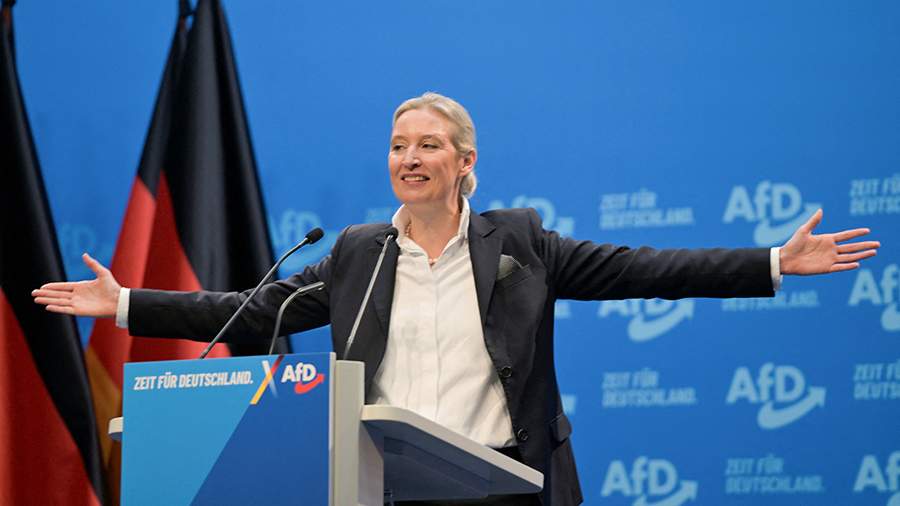A political analyst pointed to the high popularity of Weidel, Germany's AdG candidate for chancellor
- Новости
- Policy
- A political analyst pointed to the high popularity of Weidel, Germany's AdG candidate for chancellor
Alice Weidel, the candidate for chancellor of Germany from the Alternative for Germany (AdG) party, has the highest level of popularity against her opponents, but Friedrich Merz, who heads the Christian Democratic Union (CDU) party, is more likely to take the post. This opinion was shared with Izvestia on January 23 by Ruslan Andreev, an expert at the Polylog Group and a political consultant.
"AdG leader Alice Weidel has become the most popular candidate for chancellor. But mainstream parties continue to boycott right-wing populists, despite the party's strengthening and confident performance in the Landtag elections in several eastern states," he noted.
Thus, amid discontent with the energy and migration crisis, the far-right AdG has consolidated its position in the second line of the party rating (22%). The party confidently overtakes the ruling Social Democratic Party of Germany (SPD) with 16%, but is far behind the right-conservative CDU (30%), which will have the right to form a new government, the expert explained. It is likely, he believes, the 69-year-old Merz will become the new chancellor, but to control the parliament, he will have to go to an alliance with the SPD, and if there are not enough mandates, then with the Greens.
"On the other hand, the AdG has successfully established contacts with [American billionaire] Ilon Musk and [ US President] Donald Trump - amid the success of the "right-wing wave" in the US, we can expect a push to strengthen their European allies. "A complete ban of Alternative for Germany seems unrealistic, but legal and media pressure will only increase," predicted Andreev.
The incumbent German Chancellor Olaf Scholz, who heads the SPD, will lose after the failure of the "traffic light coalition", which included his party, the CDU and the Greens. However, admits the interlocutor of the publication, he in the case of an alliance with the CDU, he could be part of the new cabinet under Merz, despite his formal refusal.
"European institutions and the alliance of mainstream parties minimize the possibility of radical shifts in the party system. We saw something similar in the French and British elections, where the electoral system itself prevents the extreme right from winning," the political analyst summarized.
Earlier, on January 19, the Bild newspaper published the results of a poll conducted by the INSA public opinion institute, according to which 57% of Germans believe that the conservative bloc of the Christian Democratic and Christian Social Union (CDU/CSU) will win the early elections to the Bundestag scheduled for February 23, 2025, while 17% are confident in the victory of the AdG.
The head of the AdG in Thuringia, Björn Höcke, said on January 14 that Germany needs to change its political course and more and more people realize that the old political line can no longer be supported.
At the same time, on December 16, the Bundestag revoked the confidence of the Scholz government. Then German President Frank-Walter Steinmeier approved February 23, 2025 as a possible date for early parliamentary elections.
Переведено сервисом «Яндекс Переводчик»

